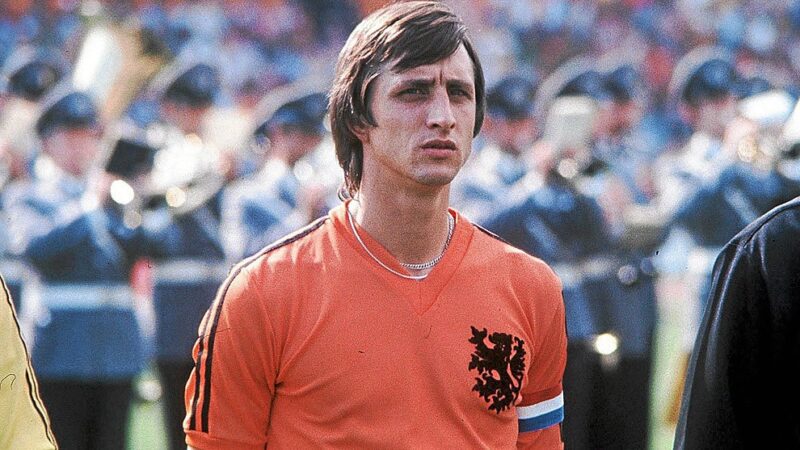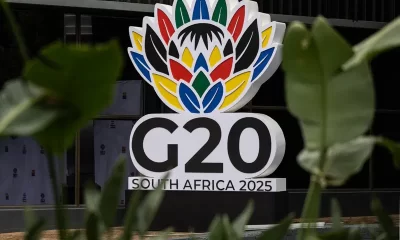Sports
Cruyff – Visionary Who Dared To Demand More -By Hassan Elbiali

- 3x Champions League winner (1970/71, 1971/72, 1972/73)
- 10 championship titles from two countries (9x Netherlands, 1x Spain)
- 3x Ballon d’Or winner (1971, 1973, 1974)
- World Cup Best Player (1974)
- IFFHS Europe’s best footballer of the 20th century
“Winning is important, but the biggest gift is to have your very own style, what people admire, what people copy,” Cruyff said. He may not go down in history as the best player or best coach, but his fingerprints are forever on Amsterdam Ajax and Barcelona, the Netherlands and Spain, big titles and small wins. Just like number 14 would have liked.
All traces lead to the father
Four summers after losing the World Cup final, in 1978, the 31-year-old Cruyff did not travel to Argentina with the Dutch team. He had helped them there the previous fall, but then declared his team career over and a few months later threw the bushes into the corner. He helped.
The reasons for the sudden abandonment remained a mystery for nearly 30 years, until Cruyff finally agreed to dissect them. A year before the final tournament, his family had been taken hostage in Barcelona. “If your head is pressed against the pipe, if you and your wife are tied up in front of children … the police later sent them to school, the police spent three or four months with us. I was sent to the games by a security guard,” Cruyff reminded Catalunya Radio.
“Moments like this make you look at many things from a new angle. There are moments in life where something else becomes valuable. We wanted to live a little differently. It was the right time to leave football, I wouldn’t have been able to play in the World Cup after that experience.”
The Netherlands reached its finals without a talisman, but lost, just like four years earlier. Then Cruyff had played brilliantly throughout the tournament, but was quite pale in the final. With the help of Bild, the Germans who responded deceived him mentally – the story that appeared four days before the finale about how four Dutch team members had relaxed with champagne and women may not have been true (there is no information about this in the sixth part to this day), but of course the name of the star and therefore she had to sit on the phone for half the night to reassure her husband.
The most important things for Cruyff were always the two things he didn’t have in his youth – family and money. The merchant’s father, Hermanus, only went on manala at the age of 45 when his son was 12. They had been very close, the sudden death of a parent changed the mind of young Johan radically. But there was no waste of money then. Cruyff’s mother Nel gave up running a family shop and started working as an Ajax cleaner.
The father had supported his son’s desire to become a footballer, and in order to achieve his goals, Johan did not have to drop out of school at the age of 13 to work part-time as a salesman in a sports shop in addition to training. But he fulfilled his dream, now at four. He had to. Decades later, Cruyff was able to hold long conversations with his father behind the kitchen table.
The little boy from Amsterdam became such a good footballer that when he bought Barcelona in 1973, they had to register a tractor – the Spanish government refused to accept that the footballer would be paid that amount (~ £ 920,000, almost half the previous record). The decision to terminate five years later seemed stranger.
It was only by chance (happy, unhappy) that Cruyff returned to his natural environment. He was not motivated by a hunger for the game, but still by money. The Dutchman was not left poor through some silly evil, but by investing: in Spain, the slick-speaking French-Russian lucky hunter Michel Basilevich sold the idea of saving the pig farm to the Cruyffs, but they no longer saw most of it.
For many footballers, these later years proved to be a blessing, as they made Cruyff look at the world from a different perspective. “Until I turned 30, I did everything by the hour. It wasn’t until after my 30th birthday that I began to understand why I did the things I did,” Cruyff noted. We can assume that without a pig farm man, the history of football would have been completely different.








